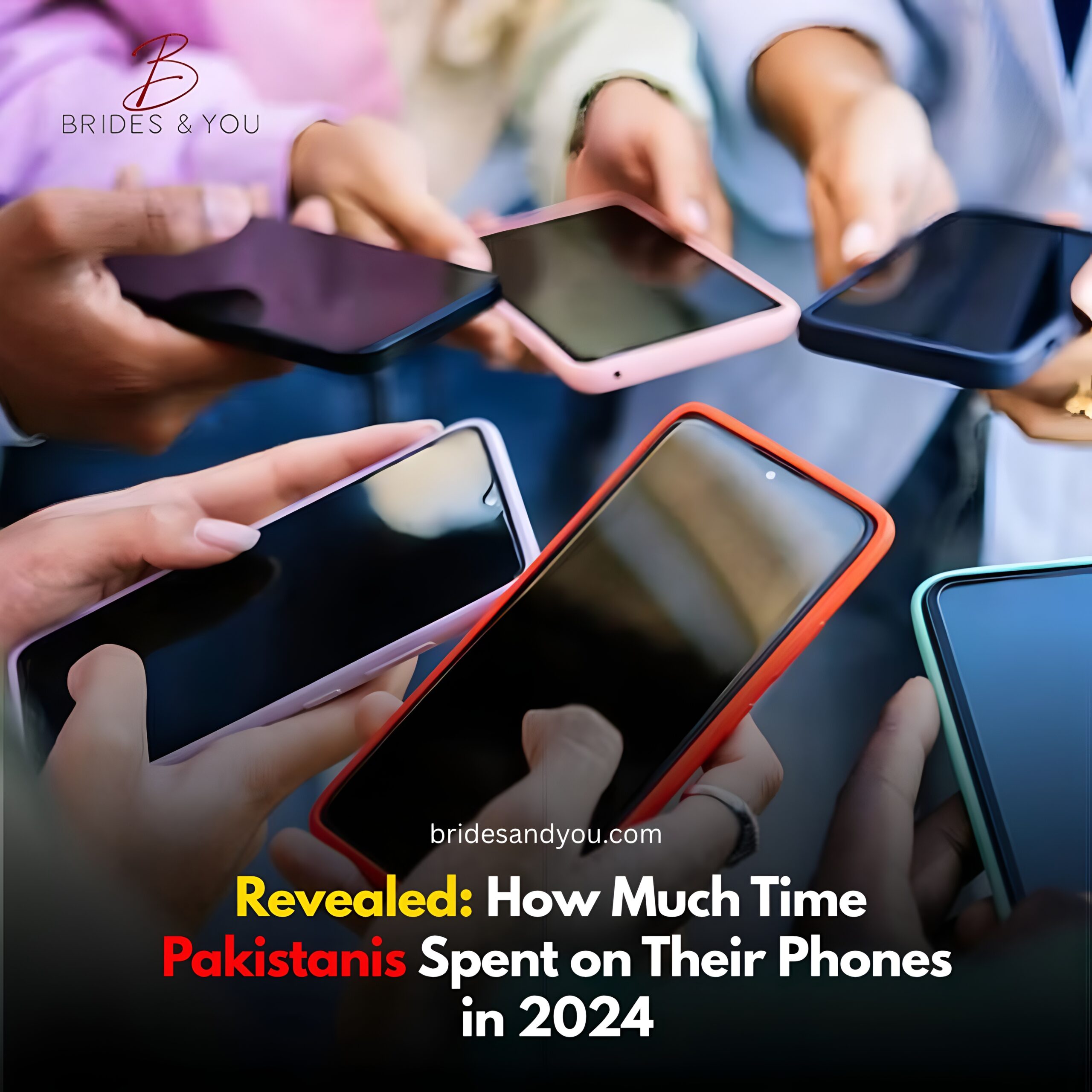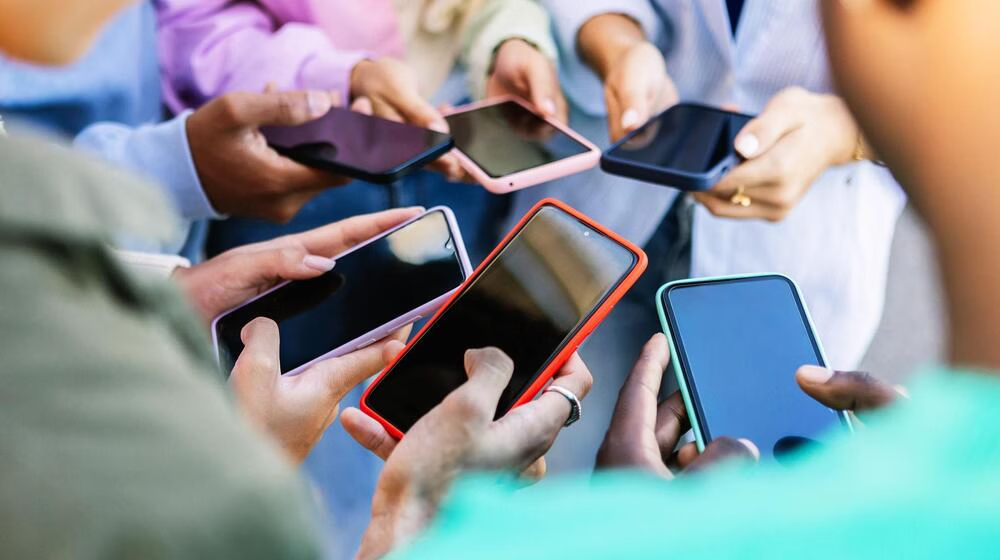Now Reading: Pakistanis Spent Record 79.1 Billion Hours on Mobile Apps in 2024 — A Deep Dive into Digital Habits
-
01
Pakistanis Spent Record 79.1 Billion Hours on Mobile Apps in 2024 — A Deep Dive into Digital Habits
Pakistanis Spent Record 79.1 Billion Hours on Mobile Apps in 2024 — A Deep Dive into Digital Habits

In 2024, Pakistan reached a new milestone in digital engagement. According to the State of Apps 2024 report by Data Darbar, based on data from data.ai, Pakistanis spent a record 79.1 billion hours on mobile apps, up from 69.3 billion hours in 2023. This represents a 14.1% increase in just one year a sign of how deeply smartphones have become part of daily life.
Since 2020, when total app usage stood at 39.9 billion hours, Pakistan’s digital engagement has nearly doubled. This rapid rise shows how mobile phones have transformed from simple communication tools to essential devices for entertainment, education, business, and financial transactions.

Growing Dependence on Smartphones
The report highlights that mobile phones are now central to how Pakistanis connect, work, and entertain themselves. People are using their phones for everything from streaming dramas and creating social media content to managing daily expenses through mobile banking apps.
This growing dependence on smartphones is not limited to young users. People across all age groups now rely on their phones for shopping, communication, and digital payments. The increasing popularity of apps like JazzCash and Easypaisa reflects how digital finance is becoming part of everyday life, especially in smaller cities and towns where traditional banking is less accessible.
Pakistan’s Digital Growth Outpaces Global Average
While the global app usage grew by only 5.5%, Pakistan’s growth rate was nearly three times higher, making it one of the fastest-growing digital markets among emerging economies. Countries like Egypt, Indonesia, and Mexico also recorded growth, but Pakistan’s numbers stood out due to its expanding internet access and the affordability of smartphones.
This rise can be attributed to:
- Affordable 4G services and increasing network coverage.
- Cheaper smartphones, making digital access easier for lower-income groups.
- A young, tech-savvy population that quickly adapts to new platforms.
- High demand for entertainment apps, especially during events like cricket tournaments or social media trends.
Increase in App Downloads and Usage
Pakistanis didn’t just spend more time on apps they also downloaded more of them. App downloads in 2024 hit 3.56 billion, showing a 9.2% increase from the previous year.
Among the most downloaded and actively used apps were:
- TikTok – continued to dominate short video content.
- Facebook – remained popular for social interaction and small business promotion.
- Tamasha – gained traction as a local video streaming platform.
- JazzCash and Easypaisa – strengthened their hold on the mobile banking sector.
The success of these apps reflects the diversity of Pakistani digital habits. While entertainment remains a strong driver, financial technology and e-commerce are rapidly catching up, showing a shift toward practical and productive app usage.
Rising Data Consumption in Pakistan
The report also noted that average monthly mobile data usage reached 8.4 GB per user, another indicator of how deeply mobile devices are integrated into daily life. From watching YouTube videos and streaming cricket matches on Tamasha to using WhatsApp for business communication, data usage patterns reveal how smartphones are serving both personal and professional needs.
Telecom companies in Pakistan have been investing heavily in improving their 4G infrastructure to meet this growing demand. Additionally, the slow but steady rollout of 5G trials hints at even more digital possibilities in the coming years.
The Role of Entertainment and Social Media Apps
Entertainment continues to play a huge role in driving app engagement in Pakistan. Platforms like TikTok, SnackVideo, and Instagram Reels have become powerful tools for creative expression, especially among youth and influencers.
Local content creators are using these platforms to share talent, build audiences, and even earn income. Many small businesses also use social media as a cost-effective marketing tool. Pakistani dramas, music videos, and reels have gained millions of views, reflecting how entertainment has moved from television screens to mobile phones.
Social media has also become an important source of news and public opinion. Apps like Facebook and Twitter (now X) serve as platforms where users share their views on politics, culture, and lifestyle trends.
Mobile Banking and E-commerce on the Rise
Financial apps like Easypaisa, JazzCash, and NayaPay have become essential for cashless transactions. From paying utility bills to sending money across the country, these apps are helping Pakistanis transition toward a digital economy.
E-commerce apps such as Daraz, Foodpanda, and Cheetay are also seeing consistent growth. People are increasingly comfortable with online shopping and food delivery, showing that Pakistan’s digital economy is evolving rapidly.
This rise in app-based transactions reflects both convenience and trust key elements that will continue to shape the future of Pakistan’s financial and retail sectors.
Challenges Facing Pakistan’s App Ecosystem
Despite impressive progress, the report also highlights ongoing challenges. Local app development still lags behind international competition. Most popular apps used in Pakistan are developed abroad, meaning local developers miss out on potential revenue and innovation opportunities.
Moreover, digital infrastructure — including reliable internet access in rural areas needs improvement. Many remote regions still struggle with weak connectivity, limiting equal access to digital services.
The report suggests that to sustain this digital momentum, greater investment in technology, innovation, and connectivity is crucial. Encouraging local app development and supporting tech startups could help Pakistan create homegrown solutions for its growing online population.
The Future of Mobile App Usage in Pakistan
If current trends continue, Pakistan’s total app usage could surpass 90 billion hours by 2025. With internet penetration expected to grow and smartphone prices continuing to fall, the digital revolution shows no signs of slowing down.
As the youth population becomes more connected, Pakistan’s mobile app ecosystem is likely to expand further into areas like education, health, and business productivity. The integration of AI, fintech, and localized entertainment content could also redefine how Pakistanis interact with technology.
In short, Pakistan is rapidly transforming into a mobile-first nation, where smartphones are not just communication tools but gateways to opportunity, creativity, and economic growth.










